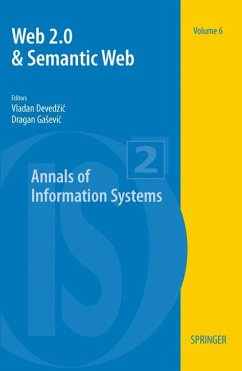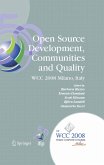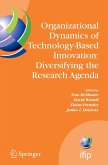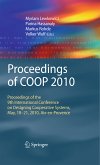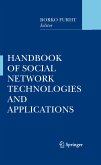This special issue of AoIS presents cutting-edge research on both of these often opposed trends in computing and will support discussion on both the synergies and controversies inherent in the two technologies, while also considering what other technologies can contribute to both. Dramatic advances in service-oriented architectures, model-driven engineering, and Web mining technologies are but a few of the developments that might have a considerable impact on both Web 2.0 and Semantic Web, and they will all be covered in this volume.
Dieser Download kann aus rechtlichen Gründen nur mit Rechnungsadresse in A, B, BG, CY, CZ, D, DK, EW, E, FIN, F, GR, HR, H, IRL, I, LT, L, LR, M, NL, PL, P, R, S, SLO, SK ausgeliefert werden.

